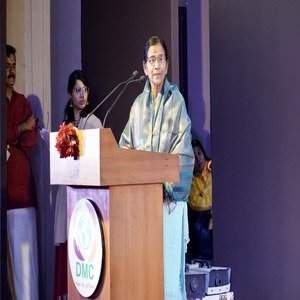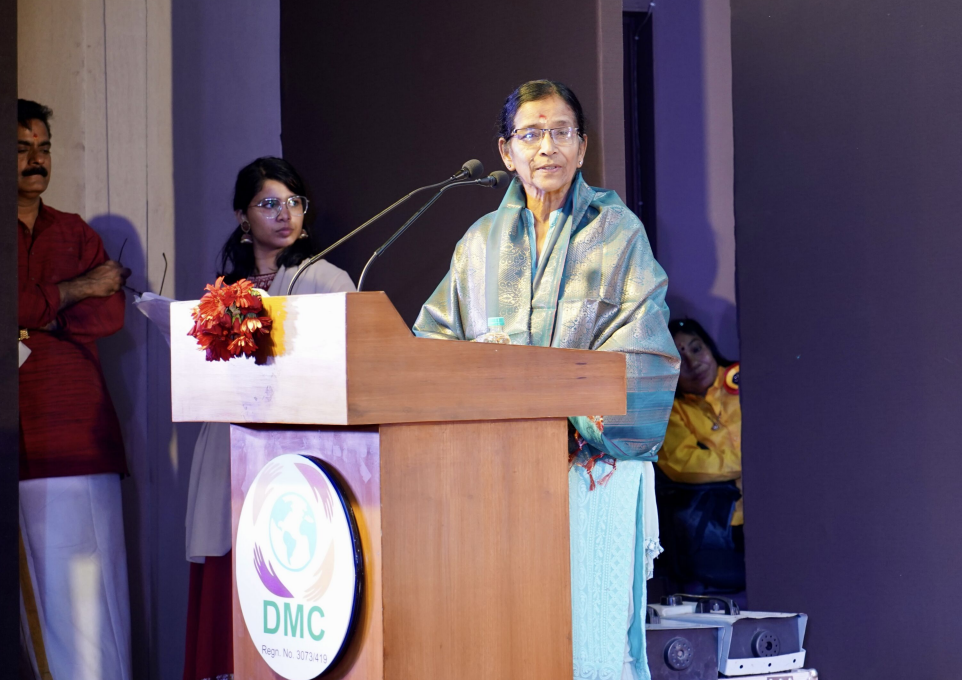
 A. J. Philip
A. J. Philip

In the early 1980s, after residing in various places in Patna, I eventually settled down on Road No. 14 in Rajendra Nagar, very close to Bahadurpur Gumti, a level-crossing where one sometimes had to wait for up to half an hour for trains to pass in opposite directions. There was no certainty of crossing the massive gates due to the uncertainty of the train schedules.
One of the most comical scenes I witnessed at Bahadurpur Gumti was the growing impatience on the faces of two youths. They had a bicycle and were in a hurry to cross. An immobile goods train blocked their path. After deliberating among themselves, they decided to manoeuvre the bicycle to the other side beneath the train.
As they strenuously struggled to push it under the train, it moved for a brief moment and then came to a halt. The cycle was transformed into a mangled mass of steel, unrecognisable as a two-wheeler. They somehow managed to retrieve the cycle, fearing that the police might otherwise discover them and impose penalties.
If this was one of the most foolish acts I witnessed at Bahadurpur Gumti, there were even more interesting scenes to observe regularly. This was in a time long before artificial insemination was introduced to enhance the quality of bovines. The land adjacent to the Gumti was utilised for inseminating cows and buffaloes in the natural, traditional manner. Farmers brought these animals to the stud farm, where the owners knew how to encourage disinterested males to be creative in a matter of seconds.
The ground-floor house we stayed in was situated at an intersection. It took me many months to realise that most of the residents in the area were Kurmis, an Other Backward Class (OBC), whose traditional occupation was growing and selling vegetables. My immediate neighbour, separated by a small road, was Dharambir Sinha, who was at that time more popular and senior to Bihar Chief Minister Nitish Kumar.
Sinha was a member of Indira Gandhi’s government when the Emergency was imposed on the country. He was elected from Barh and served as a minister of state for information and broadcasting for a while. He knew many editors and writers of that period who approached him for favours. He visited Patna only rarely.
Whenever he was at home, he would call me to discuss state and national politics. He was a confidante of Sharad Pawar and one day introduced me to the Maratha strongman at Maurya Hotel, where we discussed politics over steaming idli, sambar, and vada.
One day, there was a power cut, and we had to struggle to keep ourselves sane in the company of thousands of hungry predators called mosquitoes. Sinha had already reached the limit of his patience. He mentioned he couldn't sleep the previous night and left for Hotel Maurya. He represented the elite who resided in the colony.
It is a different, but unfortunate, matter that many years later, Sinha was found dead in a hotel room in Mumbai in mysterious circumstances. His father was, in his time, the Supreme leader of the Kurmis and had reached the position of Speaker of the Bihar Assembly. My story of Dharambir Sinha is incomplete without this anecdote.
Sinha wanted me to accompany him to a polling booth. My wife and I went in style to the booth in his car. Unfortunately, while we could vote, Sinha had to return disappointed as his vote had already been cast by an impersonator.
Please don’t be under the impression that we stayed in an elite, posh colony. I have a close relative who accused me of boasting in my columns. I do not have to defend myself as my columns bear testimony to what I write. The fact of the matter is that there was a small colony of Musahars right in front of my house, again separated by a small road.
The Musahars, also known as Musahar Harijans, find their roots in the ancient varna system of India, where they were traditionally relegated to the lowest rung of society. Historically, their primary occupation was scavenging and collection of forest produce. They were often forced to live on the outskirts of villages and were subjected to extreme poverty and deprivation.
The British colonial rule in India further exacerbated their plight. They were subjected to oppressive policies, including the infamous "Criminal Tribes Act" of 1871, which classified them as a "criminal tribe" and subjected them to systematic discrimination and surveillance. This colonial legacy left a lasting impact on their socio-economic status.
In our neighbourhood, they lived in small huts where they could barely stand. They reared pigs and sold illicit liquor. One disturbing scene I often had to witness was when their elder, who appeared to be in his sixties, sterilised the male pigs just before they reached maturity.
He would catch the pig, tie its legs, and immobilise the animal on the ground with the assistance of his wife, as he used a blade to cut its genitals and remove the testicles. He had a mischievous smile on his face as he did this, perhaps anticipating the dish that awaited him in a few minutes!
Once the operation was complete, he would sprinkle some ashes over the wound and untie the legs. The animal would run away, screaming in pain, and often jump into a nearby dirty pond in search of some relief. I despised him for his cruelty. One day, I asked him why he sterilised the animals. He replied, "Otherwise, they would chase after females and not gain weight. The heavier the animal, the better the return I get."
The children in the colony never attended school. They were always present in the area. It's not that they were unproductive; I observed them skilfully catching rats and bandicoots, roasting them directly over a fire, and eating them on the spot. In fact, the word "Musahar" means rat-eater.
There are mythological stories about how they became the lowest of the low castes. I often felt pity for them, but I could do nothing except write an occasional feature or a thunderous editorial on them, which a study found, only five percent of the readers ever read. After all, I was not a social worker but a journalist.
Many, like me, have written about the Musahars and their economic and social plight. Some may have even conducted research projects on them, and their findings may have moved fellow researchers when presented in the comfort of a star hotel or an academic institution.
Sudha Varghese was one person who felt differently about the Musahars. She had no sympathy or pity for them. She understood that they needed awareness of their own situation and the determination to overcome it. So, she began to engage with them.
She would visit their colonies in Danapur area of Patna on a bicycle. She was a nun, and while the church supported her activities, her superiors were often hesitant about her crossing undefined boundaries.
She realised that there was a gap between her and the Musahars. No matter how welcome she was as a "cycle wali Dadi" (bicycle-riding grandmother), they couldn't ignore the social divide that separated them. She was educated, bathed at least once a day, and ate properly cooked food, unlike them.
Varghese knew that to gain their trust, she needed to bridge the gap. The ultimate divide was her inability to eat rat, prepared in the same way the Musahars cooked it. It was a rite of passage for her. Once she accomplished this, she was confident that she had earned their trust.
She shifted her residence to their mohalla to gain their confidence. She lived there for nearly three decades, which is more than one-third of a person's life, to use Biblical terms. It was not an easy life for her. She brought education and enlightenment to the Musahars, who realised that they were not receiving their due.
They may have been considered untouchables, but the upper-caste men had no problem exploiting their young women. Their caste was not a deterrent for them. They started demanding fair wages, despite facing resistance and threats. She remained steadfast and resolute.
Things began to change. Girls and boys started studying, learning to read, write, and calculate. They realised they had reservations in jobs. Boys who used to loiter were directed towards sports and games. Women began earning their own income, and with a little money in their pockets, their husbands began to respect them more. Her tormentors knew that if they touched the Musahar women, they would go to jail.
It was nothing short of a revolution. Varghese was honoured with the Padma Shri, and the state government appointed her as the vice-chairman of the state minorities commission. For once, she had the trappings of power, including a government vehicle.
Those who once threatened her began to respect her. When the Distress Management Collective (DMC) of Delhi considered instituting an award, they thought of no one else but Varghese as its recipient. Her presence on the stage when she received the award was graceful.
I eagerly awaited her speech, as I was one of the few in the hall who knew about the Musahars and what she had done for them. Of course, I had read about her, but hearing from her directly was a different experience.
Varghese told the audience about Nari Gunjan, an NGO she founded to channelise help for the community. When the Musahar children attended schools, they realised that they were no less competent than the children from privileged communities, provided they were given a level playing field.
She initiated Kishori Kendras to accommodate girls in the 8-18 age group. They were taught basic literacy skills such as reading, writing, and arithmetic. Each Kendra is managed by a single teacher from the same community who also engages them in activities like music, drama, games, stories, and exposure visits.
Several schemes were introduced to provide alternative means of livelihood and encourage them to lead a settled life. Nari Gunjan also helped foster the entrepreneurial skills of the women. Self-Help Groups of women were formed to earn money through poultry farming. She cited figures of hundreds and thousands of Musahar men and women who have been lifted out of abject poverty.
No, they cannot be called middle class, let alone rich. None of them has become a doctor, engineer, or an IAS officer, but they are now self-reliant people who know that with determination and hard work, they need not resort to catching rats to fill their bellies.
When you think about it, all of this has been achieved through the efforts of one person. Of course, she has received assistance from various government and non-government agencies like Children India Foundation, General Electric, Save the Children, and Oxfam.
As she concluded her speech, Varghese received a standing ovation from the audience for the remarkable transformation she has brought about in the lives of people who are considered the Dalits among the Dalits of India.
In her inspiring journey, we witness the transformative power of unwavering dedication and grassroots efforts. Her selfless commitment to empowering the marginalised community by providing education, alternative livelihoods, and a renewed sense of self-worth has brought about a profound change.
While they may not have achieved material riches, they have attained something far more precious – the confidence that, with determination and hard work, they can shape their destinies.
The story of Sudha Varghese serves as a beacon of hope, reminding us that one individual's compassion and resolve can catalyse remarkable change, even among those who are often considered the most marginalised in our society.